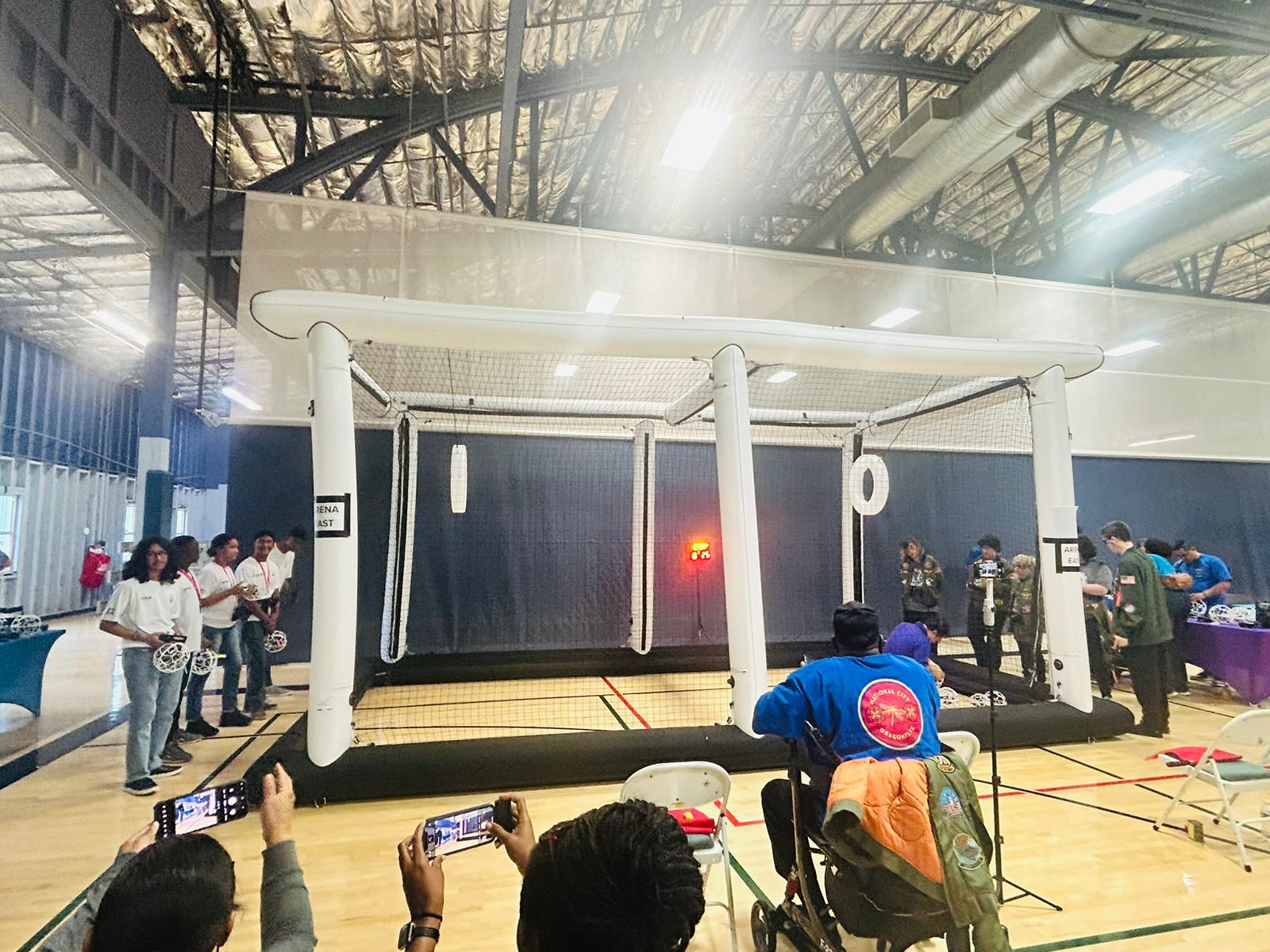by Karen Abrams, MBA, EdD ’25
A new educational sport is taking flight in Guyana, captivating the minds and hearts of young learners. The innovative Drone Soccer program, introduced by Guyana Drone Soccer in partnership with STEMGuyana, is a pioneering approach to learning that combines the thrill of competition with the intricacies of drone technology. At the helm of this ambitious rollout across Guyana and the broader Caribbean region is Leon Christian, former Guyana national basketball star and current President of Guyana Drone Soccer. His leadership is steering this innovative learning approach into a regional phenomenon, promising to inspire a new generation through the fusion of sport and science.
Imagine a sport where drones, encased in protective orbs, dart across an arena, engaging in an aerial ballet to score goals against an opposing team. This is drone soccer, a sport that is as strategic as it is exciting, designed to cultivate technical skills and teamwork among its participants.
Drone soccer is rapidly gaining traction in educational and recreational settings worldwide, and for a good reason. It offers a hands-on experience that introduces students to the core principles of aerodynamics and robotics, providing a dynamic platform to enhance STEM skills while having fun.
The program’s foundation is deeply rooted in constructionist and experiential learning theories, which suggest that knowledge is actively constructed through hands-on, collaborative experiences. By participating in drone soccer, students apply physics and engineering concepts in real-time, learning through action and reflection.
Adding a competitive edge to the learning process, the program incorporates gamified learning elements. These include leaderboards, point systems, and levels that represent skill acquisition, along with specific tasks designed to teach technical skills and strategic thinking.
The program also aligns with Self-Determination Theory, satisfying the basic human needs for autonomy, competence, and relatedness. Students are given the freedom to make meaningful choices, develop skills, and build community through teamwork. The sport’s cooperative nature encourages participants to support each other’s growth, deepening their engagement and sense of belonging.
STEMGuyana’s research aims to explore how the integration of drone technology in team sports influences student engagement, STEM career interest, soft skills development, and improved school attendance. This inquiry is crucial in guiding the integration of drone soccer into the after-school program landscape across the country.
As Guyana’s youth take to the skies in drone soccer, they’re playing a game and preparing for the future. For parents seeking to give their children an educational advantage, enrolling them in the Guyana Drone Soccer program could be the first step towards a brighter, more technologically adept future.
